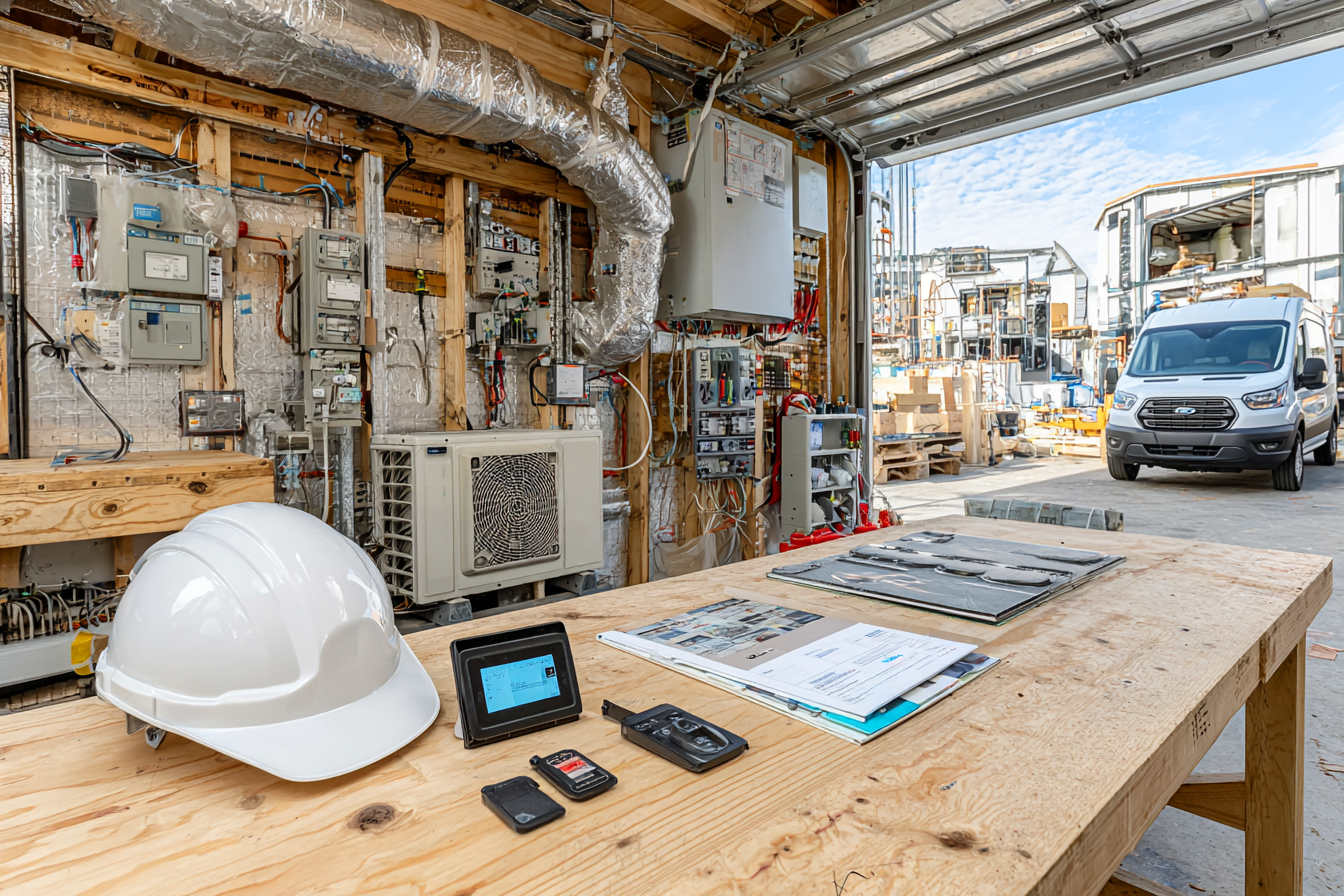What Certifications Should Your Solar or Heat Pump Contractor Have in Canada?

Written by Solenery
2 min read
Introduction
Before anyone drills into your roof or installs new HVAC equipment, you need to know they’re certified to do it right. In Canada, solar and heat pump systems must be installed by trained, licensed professionals—not just to meet code, but to qualify for rebates and avoid costly mistakes.
This article walks you through the essential certifications, licences, and insurance your clean energy contractor should hold—plus where to verify them. If you’re hiring someone to install solar panels or a heat pump, this checklist could save you thousands and protect your investment for decades.
Why Certifications Matter for Solar and HVAC Upgrades
A certified contractor isn’t just “more professional”—they’re legally required in most cases. Incorrect installs can:
- Void equipment warranties
- Fail municipal inspections
- Become dangerous or underperforming
Real example: A homeowner in Surrey, BC had panels installed without a certified electrician. The install failed inspection, delaying connection to BC Hydro by three months.
Solar Installer Certifications You Should Ask For
a. Red Seal Electrician or Provincial Electrical Licence
All solar installs in Canada must be performed or supervised by a licensed electrician. This ensures proper wiring, grounding, and code compliance.
b. CSA Solar Installation Training
Look for contractors who have completed CSA-accredited PV training or manufacturer certifications (e.g., Enphase, SolarEdge).
c. NABCEP (Optional, but Gold Standard)
While more common in the U.S., NABCEP-certified installers in Canada show high expertise in solar design and installation.
Ask: “Who on your team holds the electrical licence and oversees the install?”
Heat Pump Installer Certifications in Canada
a. HRAI Certification (Heating, Refrigeration and Air Conditioning Institute of Canada)
This is Canada’s industry standard for HVAC professionals. They offer specialized training in:
- Cold-climate heat pump installations
- Proper sizing and airflow design
- Ducted and ductless system configurations
b. TECA Certification (for BC)
In British Columbia, many heat pump installers complete training through the Thermal Environmental Comfort Association—especially for ventilation and hydronic systems.
c. Gas Technician (if installing hybrid systems)
For hybrid systems (heat pump + gas backup), your contractor may need a TSSA gas licence in Ontario or equivalent in other provinces.
What About NRCan Energy Advisors?
If you’re applying for federal or provincial rebates, you’ll need to book a Registered Energy Advisor.
These professionals:
- Are licensed through Natural Resources Canada (NRCan)
- Conduct blower door tests and EnerGuide assessments
- Unlock access to rebates and loans like the Greener Homes Loan ($40,000) and many provincial incentives
Tip: Solenery can connect you with licensed NRCan advisors based on your postal code.
Don’t Forget Business Licensing and Insurance
Even if a contractor has the right certifications, they also need to be a legally registered business in your province.
Ask for:
- Active business licence (with GST number if applicable)
- General liability insurance (at least $2M recommended)
- Workers’ compensation coverage:
- Ontario: WSIB
- BC: WorkSafeBC
- Quebec: CNESST
- Alberta: WCB Alberta
Tip: Ask for a copy of the insurance certificate. If a worker is injured on-site and your contractor isn’t covered, you could be liable.
How to Verify Certifications in Your Province
Here are tools to look up contractor credentials by region:
| Province | Verification Tool |
|---|---|
| Ontario | ESA Contractor Lookup |
| BC | Technical Safety BC |
| Alberta | Solar Alberta Directory |
| Quebec | RBQ Licence Search |
| National | HRAI Contractor Finder |
If a contractor isn’t listed or hesitates to provide credentials—walk away.
Conclusion
Your solar or heat pump project is only as good as the person installing it. In Canada, hiring a certified, licensed, and insured contractor isn’t optional—it’s the only way to ensure your system performs safely, passes inspection, and qualifies for rebates.